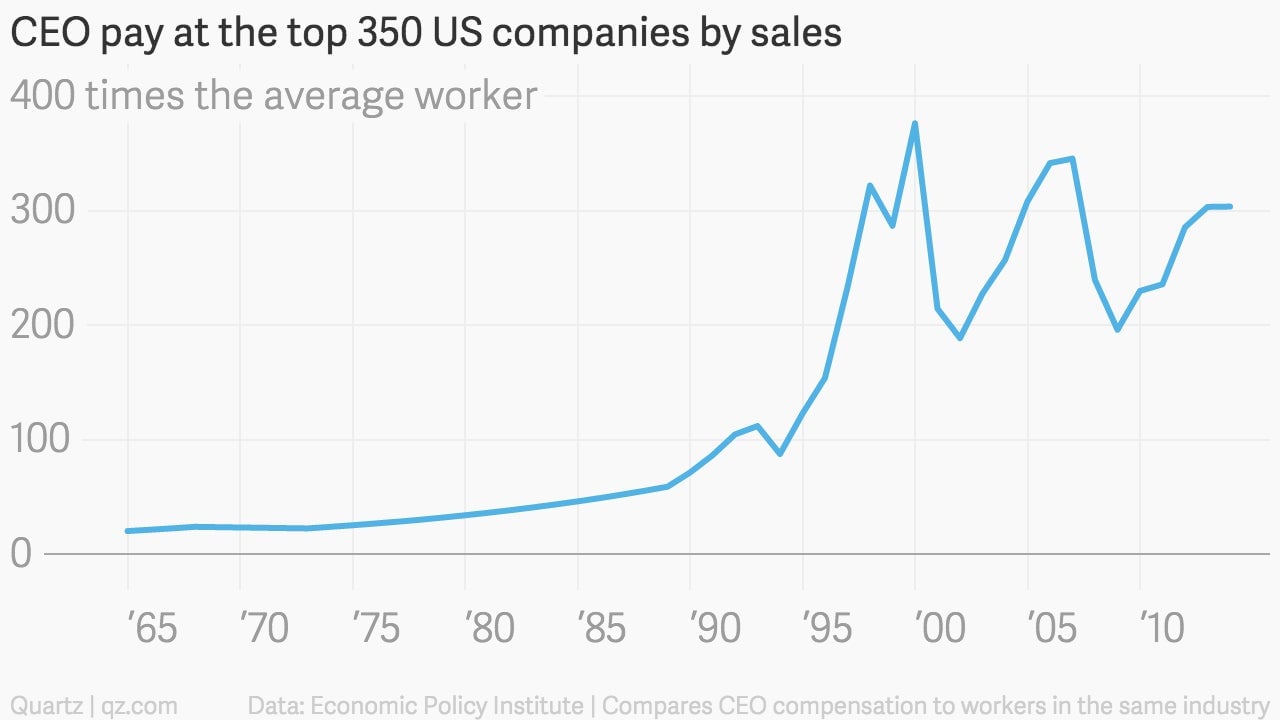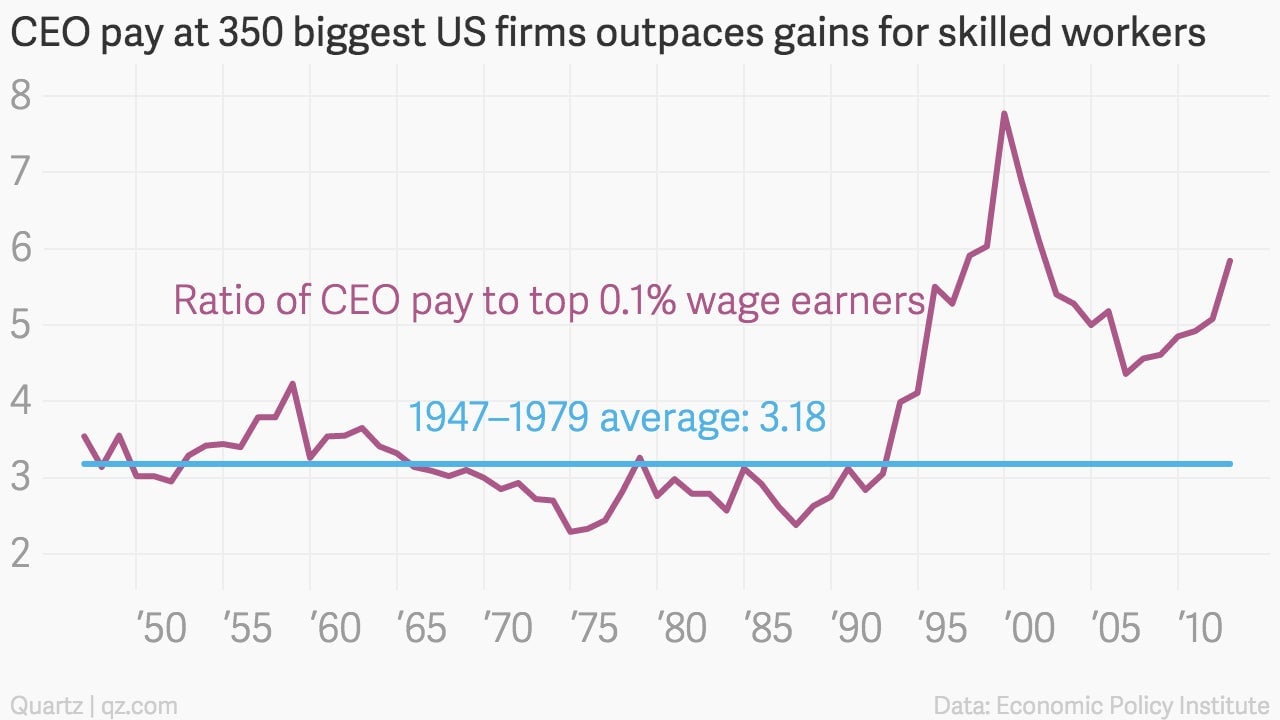Top US CEOs still make 300 times more than their workers
An annual analysis of CEO pay by the Economic Policy Institute shows that chief executives at the 350 biggest US firms make 303 times the average worker in their sector:

An annual analysis of CEO pay by the Economic Policy Institute shows that chief executives at the 350 biggest US firms make 303 times the average worker in their sector:

EPI, a left-leaning think tank, chose to limit its analysis to the largest firms because they provide a significant share of US employment and drive pay standards across the labor market.
Executive pay has not risen to the levels seen before the financial crisis or during the tech bubble, but remains much higher relative to historic measures. The ratio rose comparatively slowly in the 1960s and 70s, but from the late 1980s to 2000 CEO pay quadrupled in relation to worker compensation.
Lawrence Mishel, the economist and president of EPI who wrote the study, attributes most of that change to the significant reduction in top marginal tax rates for the wealthy since 1980, combined with the increase in stock-based compensation schemes and poor corporate governance.
“It’s quite a remarkable escalation of CEO pay relative to everybody else,” Mishel told Quartz. “Executive pay explains about 40% of the doubling of the income share of the top 1%—that’s a pretty big deal.”
In the past, critics of EPI’s analysis have argued this increase in pay isn’t specific to top executives but rather reflects the growing disparity between low and high-skilled workers across the economy. This year, Mishel and his co-author, Alyssa Davis, compared CEO pay to the top 0.1% of wage earners, a good proxy for the most skilled workers, and found that CEOs earn 5.84 times more than very highest-earning workers.

Mishel says this evidence helps demonstrate that external factors—like the cozy relationships between executives and boards of directors—have more to do with escalating CEO pay than value creation.
“I don’t think there is any evidence that CEOs are particularly adding to the overall output efficiency of the economy to a greater degree now than in the past,” Mishel says. ”If they are not increasing the economic pie disproportionately, then what they are doing is getting a bigger piece of pie and there is less pie available for everybody else.”